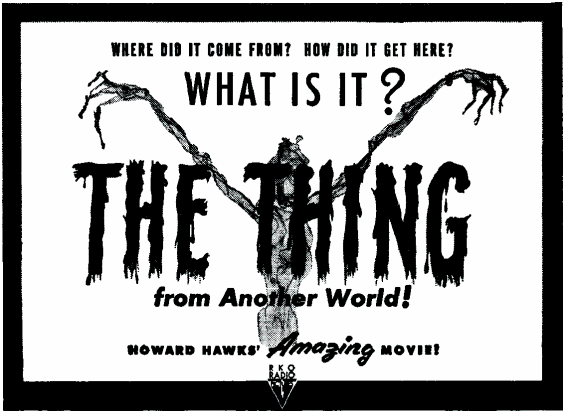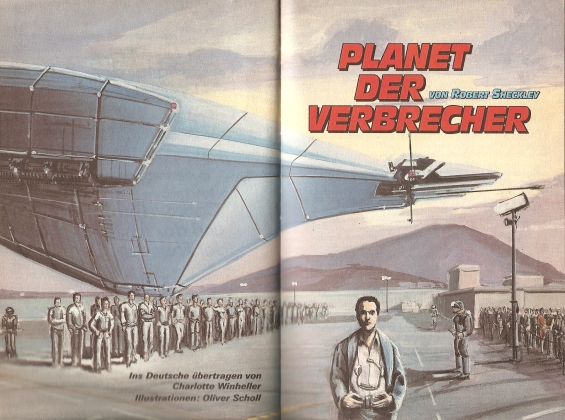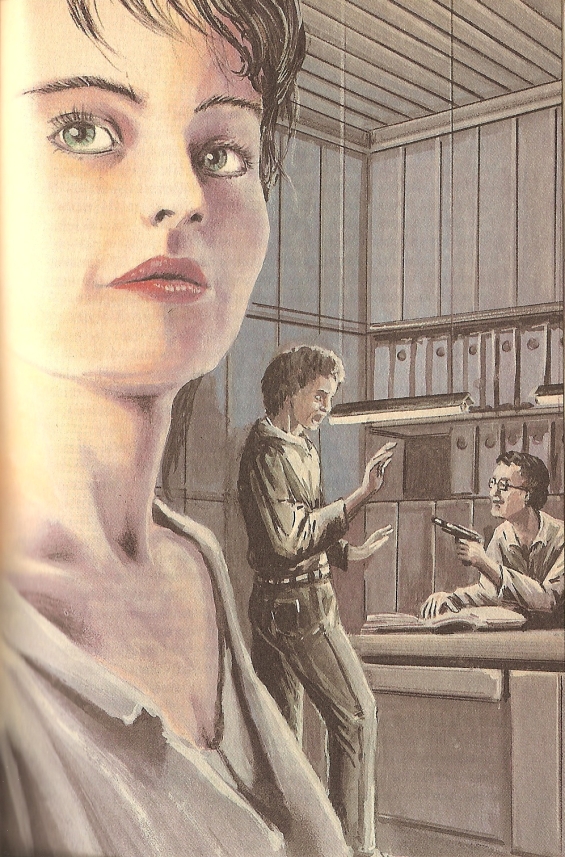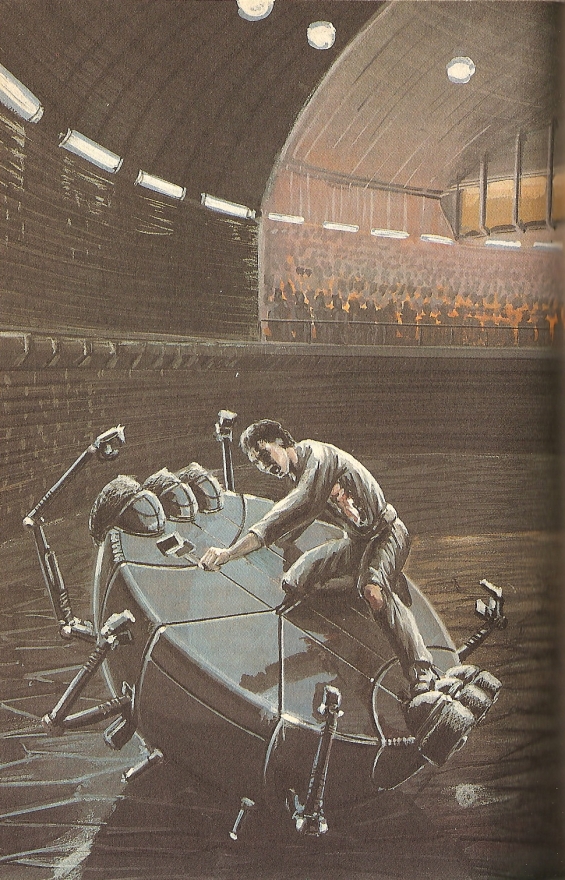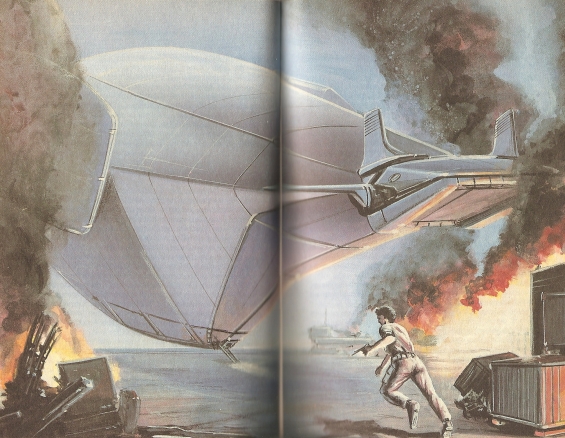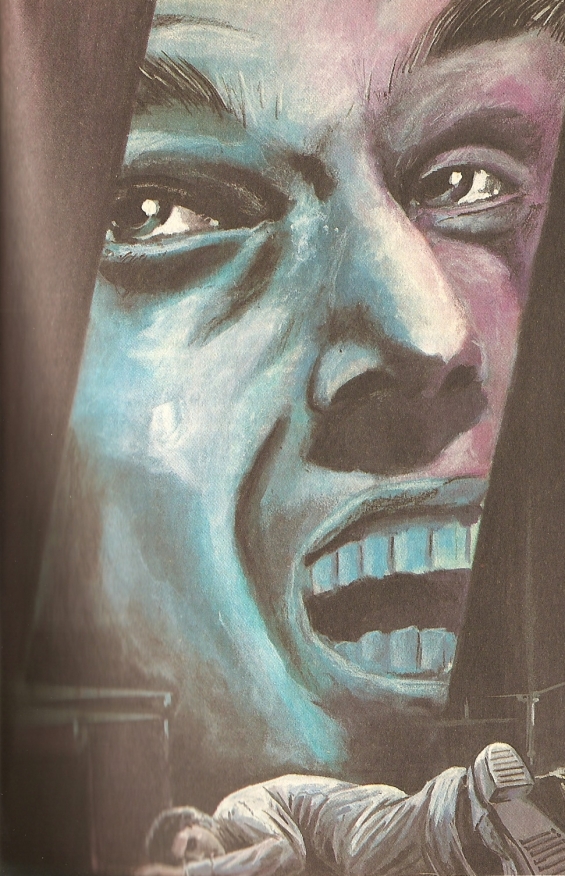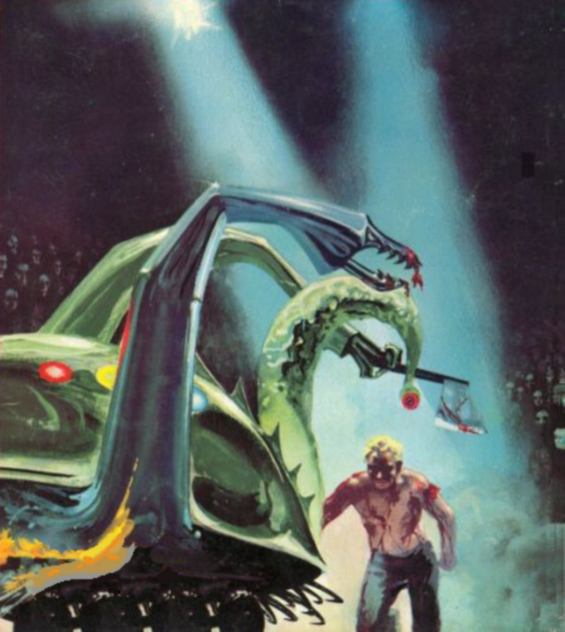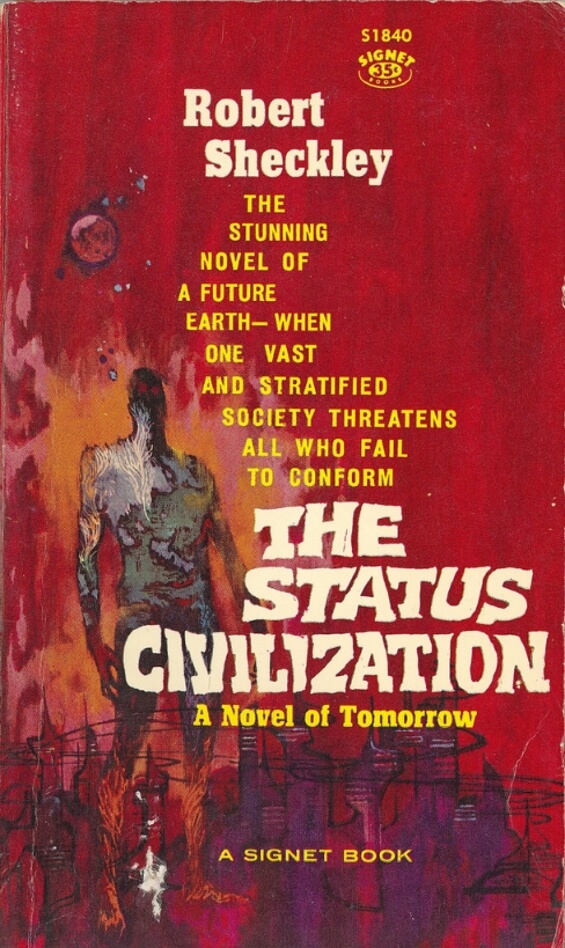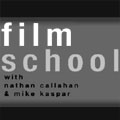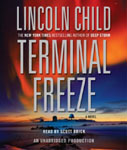

The “All Star Anniversary Issue” of Fantasy And Science Fiction Magazine (for October 1958) featured famed editor Anthony Boucher’s regular “Recommending Reading” column – but with a twist. In celebration of the magazine’s 9th anniversary Boucher challenged himself to create a list of “Fifty Review Copies I Would Not Part With.” He failed in this herculean task – he just couldn’t pair down the list to fifty (even by restricting what would qualify in a number of ways). Instead, he ended up listing 52 Science Fiction novels or collections that he had no hand in publishing, another six that he did, and twelve Fantasy titles that were absolute must keepers as well. Of them Boucher wrote:
“These are novels and collections which have, from 1949 through 1957, given intense pleasure to a man professionally, obligated to read every s.f. book published in America; and I venture the guess that any reader, novice or habitué of our field, will find stimulation and delight in a high number of these titles.”
That’s good enough for me! I have reproduced as Boucher listed them (in alphabetical order by author). But I’ve added links to extant audiobook editions:
Boucher’s 52 best SF books:
Brain Wave by Poul Anderson |BLACKSTONE AUDIO|
I, Robot by Isaac Asimov [COLLECTION] |READ OUR REVIEW|
The Caves Of Steel by Isaac Asimov |READ OUR REVIEW|
The Naked Sun by Isaac Asimov |READ OUR REVIEW|
Earth Is Room Enough by Isaac Asimov [COLLECTION]
The Demolished Man by Alfred Bester
The Stars My Destination by Alfred Bester
The Long Tomorrow by Leigh Brackett
The Martian Chronicles by Ray Bradbury [COLLECTION] |READ OUR REVIEW|
What Mad Universe by Fredric Brown
The Lights In The Sky Are Stars by Fredric Brown
Angels And Spaceships by Fredric Brown [COLLECTION]
Cloak Of Aesir by John W. Campbell [COLLECTION]
No Blade Of Grass / The Death Of Grass by John Christopher |AUDIBLE FRONTIERS|
Prelude To Space by Arthur C. Clarke
Expedition To Earth by Arthur C. Clarke [COLLECTION]
Against The Fall Of Night (and The City And The Stars) by Arthur C. Clarke
Mission Of Gravity by Hal Clement
The Wheels Of If by L. Sprague de Camp [COLLECTION]
Rogue Queen by L. Sprague de Camp
Nerves by Lester Del Rey
Eye In The Sky by Philip K. Dick |BLACKSTONE AUDIO|
The Third Level by Jack Finney [COLLECTION]
The Man Who Sold The Moon by Robert A. Heinlein [COLLECTION]
The Green Hills Of Earth by Robert A. Heinlein [COLLECTION] |BLACKSTONE AUDIO|BOOKS ON TAPE|CAEDMON|
Bullard Of The Space Patrol by Malcolm Jameson
Takeoff by C.M. Kornbluth
The Explorers by C.M. Kornbluth [COLLECTION]
Not This August by C.M. Kornbluth
Gather, Darkness by Fritz Leiber
The Green Millennium by Fritz Leiber |WONDER AUDIO|
The Big Ball Of Wax by Shepherd Mead
Shadow On The Hearth by Judith Merrril
Shadows In The Sun by Chad Oliver
Another Kind by Chad Oliver [COLLECTION]
A Mirror For Observers by Edgar Pangborn
The Space Merchants by Frederick Pohl and C.M. Kornbluth
The Other Place by J.B. Priestly [COLLECTION]
Deep Space by Eric Frank Russell [COLLECTION]
Untouched by Human Hands by Robert Sheckley [COLLECTION]
City by Clifford D. Simak [COLLECTION] |AUDIBLE FRONTIERS|
Strangers In The Universe by Clifford D. Simak
Without Sorcery by Theodore Sturgeon [COLLECTION]
The Dreaming Jewels by Theodore Sturgeon |BLACKSTONE AUDIO|
More Than Human by Theodore Sturgeon |BLACKSTONE AUDIO|
Slan by A.E. van Vogt |BBC AUDIOBOOKS AMERICA|
The Weapon Shops and The Weapon Makers by A.E. van Vogt
Player Piano by Kurt Vonnegut Jr. |AUDIBLE MODERN VANGUARD|
A Martian Odyssey by Stanley Weinbaum [COLLECTION] |LIBRIVOX|
The Throne Of Saturn by S. Fowler Wright
The Day Of The Triffids by John Wyndham |AUDIBLE FRONTIERS|
Re-Birth/The Chrysalids by John Wyndham |AUDIBLE FRONTIERS|
Excellent titles that had origins on the pages of Fantasy And Science Fiction:
Bring The Jubilee by Ward Moore
Tales From Gavagan’s Bar by Fletcher Pratt and L. Sprague de Camp [COLLECTION]
The Sinister Researches Of C.P. Ransom by H. Nearing Jr. [COLLECTION]
One In Three Hundred by J.T. McIntosh
The Star Beast by Robert A. Heinlein |FULL CAST AUDIO|
The Door Into Summer by Robert A. Heinlein |BLACKSTONE AUDIO|
Boucher’s best dozen Fantasy books:
The Devil In Velvet by John Dickson Carr
Fancies And Goodnights by John Collier [COLLECTION]
The Worm Ouroboros by E.R. Eddison |MARIA LECTRIX|
The Circus Of Dr. Lao by Charles G. Finney
The Private Memoirs And Confessions Of A Justified Sinner by James Hogg
Fear by L. Ron Hubbard |GALAXY PRESS|
The Lottery by Shirley Jackson [COLLECTION] |BBC AUDIOBOOKS AMERICA|
The Ghostly Tales by Henry James [COLLECTION]
Pogo by Walt Kelly
Till We Have Faces by C.S. Lewis |BLACKSTONE AUDIO|
Further Fables For Our Times by James Thurber [COLLECTION]
The Lord Of The Rings by J.R.R. Tolkien |RECORDED BOOKS|
Posted by Jesse Willis

 The SFFaudio Podcast #119 – Scott, Jesse and Tamahome talk to author Paul Malmont about his novel The Astounding, The Amazing, And The Unknown.
The SFFaudio Podcast #119 – Scott, Jesse and Tamahome talk to author Paul Malmont about his novel The Astounding, The Amazing, And The Unknown.
